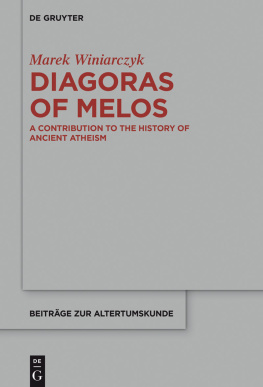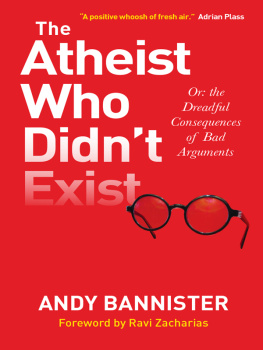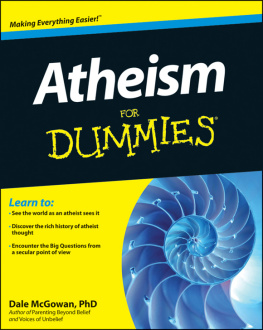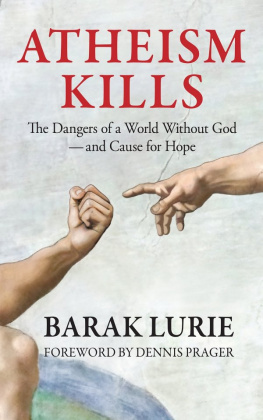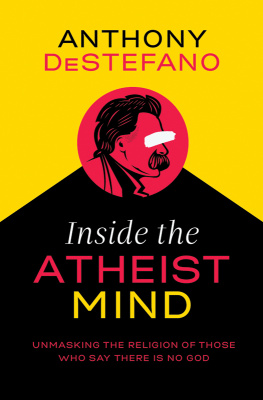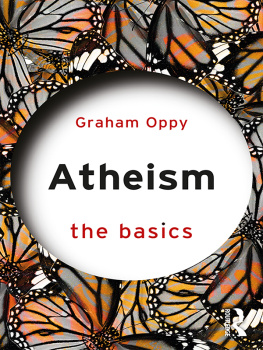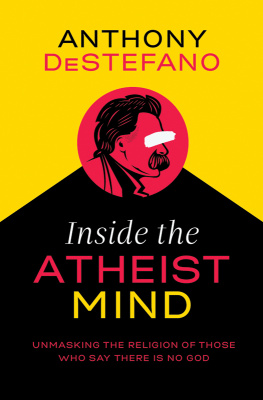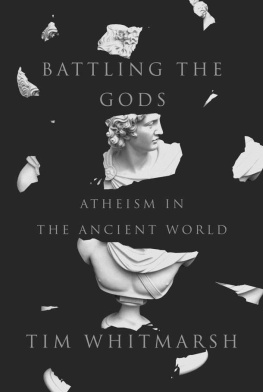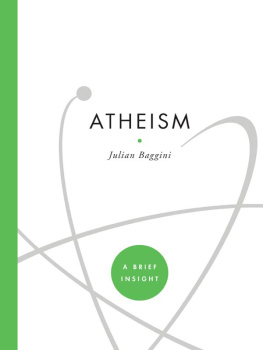Diagoras of Melos
Guide

Marek Winiarczyk
Diagoras of Melos
Beitrge zur Altertumskunde

Herausgegeben von Michael Erler, Dorothee Gall,
Ludwig Koenen und Clemens Zintzen
Band 350

ISBN 978-3-11-044377-6
e-ISBN (PDF) 978-3-11-044804-7
e-ISBN (EPUB) 978-3-11-044765-1
ISSN 1616-0452
Library of Congress Cataloging-in-Publication Data
A CIP catalog record for this book has been applied for at the Library of Congress.
Bibliographic information published by the Deutsche Nationalbibliothek
The Deutsche Nationalbibliothek lists this publication in the Deutsche Nationalbibliografie; detailed bibliographic data are available on the Internet at http://dnb.dnb.de.
2016 Walter de Gruyter GmbH, Berlin/Boston
www.degruyter.com

In memoriam
Georgii anowski (19192000)
Herberti Myliwiec (19261998)
Mariani Plezia (19171996)
Preface
Diagoras of Melos was a second-rate lyric poet who would have probably been ignored in antiquity let alone modern times if he had not become famous in Athens for a quite different reason. There he criticised the Eleusinian Mysteries and discouraged people from initiation. That is why in the 420s he gained a reputation for impiety. Later ancient tradition portrayed him as a typical atheist and the author of an atheistic book. He frequently appears in the catalogues of atheists, and Hellenistic biographers ascribed to him various anecdotes to illustrate his impious views. This opinion means that the poet from Melos is not only of interest to historians of literature, but also to historians of religion and philosophy, who try to determine whether he was indeed the first radical atheist to completely deny the existence of gods. Over the last several centuries a relatively large number of articles and books, of diverse quality, have been written on Diagoras. Virtually every aspect of this subject has been disputed, from the dates and key events in his life to his work and views. Scholars have discussed whether Diagoras was only a lyric poet or perhaps also a philosopher advocating atheistic views. Some have even devised an erroneous theory that there were two different persons named Diagoras: a pious poet and an atheist philosopher.
In my book I try to reconstruct the life and work of Diagoras, but I fully realise that much of what I say will be hypothetical. Unfortunately, this is unavoidable, since there are very few reliable testimonies and some can be interpreted in various ways. I try to show that sometimes it is impossible to verify or disprove a testimonium, and that is why some problems will never be conclusively resolved. For this reason, I am deeply convinced that no one can peremptorily state that they know the whole truth about Diagoras, though some hypotheses certainly seem more convincing than others. I feel that scholars studying Diagoras should remember the words of Xenophanes of Colophon (6 th /5 th century BC). In a fragment passed on by Sextus Empiricus ( Adv. math . VII 110) he says that people have various opinions on the gods but we never know which one is correct. If some theological concept were indeed true, even the author would not know it, because opinion is wrought over all ( ).
I hope this book will become a solid basis for further studies on account of the fact that I have extensively researched literature in eight languages, honestly presented the views of other researchers and critically reviewed their hypotheses. I also hope this monograph will encourage the reader to reflect on the problem of atheism in ancient Greece. Above all the scholar should know that the words and have many meanings and that the accusation of atheism was often used to discredit people. Such was the case already in ancient times, but also in modern times, especially in the 17 th and 18 th centuries. Scientific integrity requires us to define this concept accurately and not use it for non-scientific purposes. This will help us avoid unnecessary polemics.
I treat this monograph of Diagoras as a case study. I focus on the methodological issues and try to show how complex problems should be treated in a scientific way, free of any ideological considerations. Below are several rules which in my opinion apply to the scientific approach. Ones I feel should be followed by every genuine scholar.
1.One should be aware that the views expressed by modern scholars of antiquity have diverse values.
Many statements are based on good sources and incontrovertible.
Some views seem probable because they are supported by ancient testimonia, but their information is contradicted by the testimonia of other ancient authors. In such cases scholars divide into groups, each overly stressing the value of one testimonium and undermining the value of another. The arguments used by supporters of contradictory hypotheses can never be conclusive. Therefore it is better to concede that the given controversy cannot be convincingly resolved, and opting for one view or the other would be subjective. I believe that in such situations it is better to admit to our lack of knowledge in this matter, ignoramus et ignorabimus , than support a hypothesis that can never be convincingly proved. Naturally, every scholar has the right to speak in favour of a hypothesis that seems more probable, but that person has to appreciate that it is their subjective opinion. In a scientific work one needs to clearly distinguish between what is certain and what is only probable.
Scholars sometimes propose hypotheses that are not supported by any ancient testimonia. We are then dealing with arbitrary speculation that is later repeated by others, especially if the author of the hypothesis is a very renowned scholar. Nor should we succumb to fashionable ideas that are conventional wisdom for a time until they turn out to be wrong and are rejected. For example, for several centuries it was considered certain that Euhemerus had been translated in verse by Ennius at the start of the 2 nd century BC. It was not until the first half of the 20 th century that scholars It turns out that a view held by the majority or even all scholars in a given epoch might not actually be true. Therefore, we should study sources independently ( suo Marte ) and treat scientific literature critically so as not to be swayed by academic authorities and scientific trends.
2.One cannot a priori suppose information passed on by a single ancient source is necessarily false or that it can only be considered true if it is confirmed by another testimonium. For example, we know that by Duris of Samos (c. 340270 BC) includes a lot of misleading information, which is why many scholars treated as fictitious its claim that the Spartan admiral Lysander was worshipped like a god and that his cult was established on the Island of Samos in 404/403. Considered particularly untrue was the idea that games in honour of the goddess Hera (the Heraia ) were renamed the Lysandreia . Yet in 1964 German archaeologists found the base of a statue of a victor of games devoted to Lysander. An accidentally found inscription verified Duris testimony and settled a longstanding academic dispute..
On the other hand, we should not uncritically accept information, for instance in scholia, when it is evidently wrong or of dubious value. Then again, it is also wrong to arbitrarily reject what the scholia say simply because it contradicts a given hypothesis. Each piece of information in scholia should be examined in detail and verified or disproved (see below).

